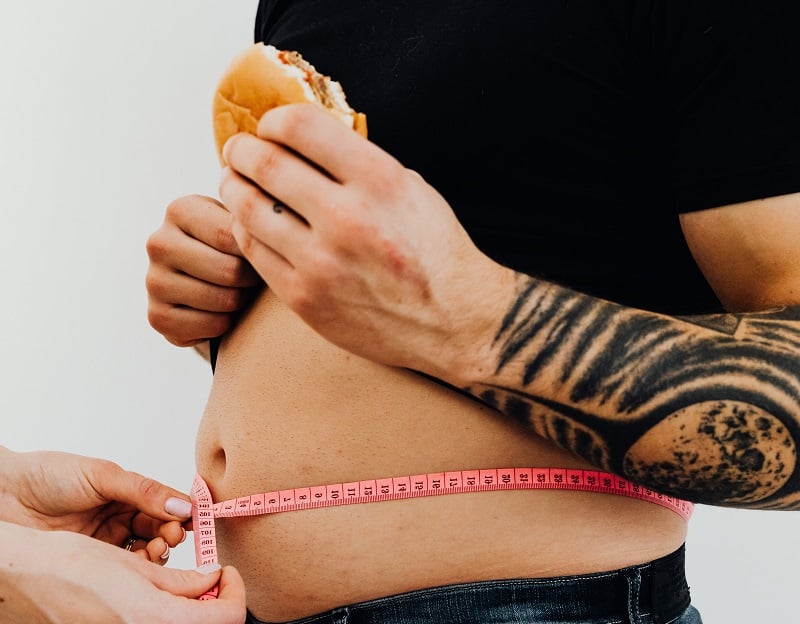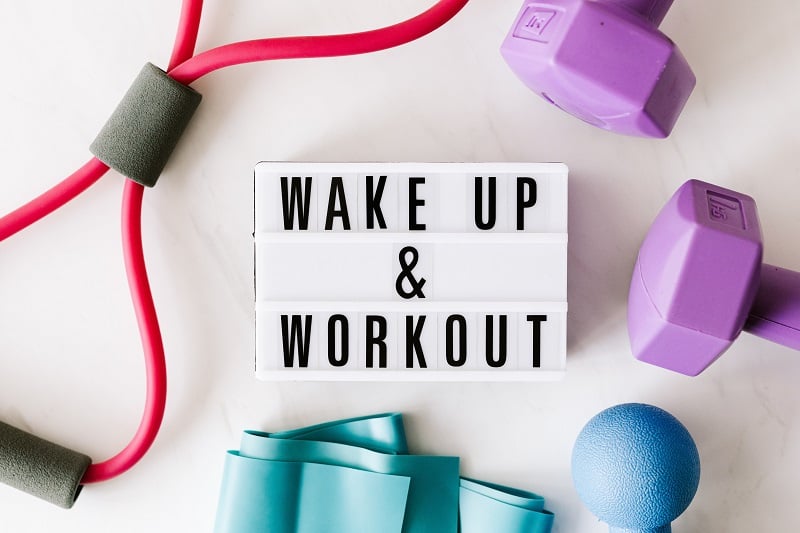Obesity and Cancer Blog - 24th January 2024
Published on 24 January 2024 12:44 PM
OBESITY AND CANCER
Did you know that being overweight or obese is the second biggest cause of cancer in the UK after smoking? In fact, obesity causes more cases of some common cancers than smoking - including bowel, kidney, liver and ovarian cancers; all of which are more often caused by being overweight than by smoking tobacco, according to Cancer Research UK.
While smoking rates are declining, obesity rates are on the rise: a concerning trend according to health experts. Dr Alison Tedstone, chief nutritionist at Public Health England, believes awareness is key: “Less than half the population realise that being obese increases the risk of cancer and, with almost two-thirds of adults carrying excess weight, this is worrying.”
There are many proven obesity-related cancers, according to Cancer Research UK, including breast and bowel cancers - two of the most common types - and pancreatic, oesophageal and gallbladder - three of the hardest cancers to treat.
While not everyone who is overweight or obese will go on to develop cancer, the risk is much greater for those who are. The more overweight someone is, and the longer they remain overweight for, the higher their cancer risk. “Maintaining a healthy weight throughout life is one of the most important things people can do to reduce their cancer risk”, says Dr Heinz Freisling, “and early prevention in adulthood is key”.
There are numerous other benefits to being a healthy weight, including less joint pain and having more energy to do the things you love. You also lower the risk of other serious long-term conditions, like heart disease, type 2 diabetes and stroke.

How can being overweight actually cause cancer?
Being overweight disrupts hormonal and metabolic pathways. Excess fat has been linked to higher oestrogen levels, higher insulin levels and increased inflammation – all of which can affect cell division and increase your cancer risk.
When we have excess body fat, it doesn’t just idly sit there causing no harm - it actively sends out signals to the rest of our body. Fat cells make extra hormones and growth factors, and these tell body cells to divide more often; thus, increasing the chance of cancerous cells developing.
You can watch a short clip here to explain more
How do I know if I am a healthy weight?
You don’t have to be obese to be at risk of cancer - anyone carrying excess fat is at some degree of risk. To check if you are a healthy weight for your height, you can calculate your BMI (Body Mass Index) here. If you are overweight, then avoid putting on more weight and know that losing weight will help to reduce your cancer risk.
Whilst BMI is a useful tool for some, it has its limitations. BMI measures whether a person is carrying too much weight, but weight does not necessarily equal fat! Sportspeople, for example, may have a high BMI because of their muscle mass, but still have a healthy amount of body fat!
Arguably a better, more accurate measurement is waist to height ratio. To calculate this, measure your waist just above your belly button, and divide this by your height (measured in the same units, e.g. cm or in). A healthy waist measurement should be no more than 0.5, or half your height. If it is over 0.5 or half your height, you are at greater risk of developing health complications due to excess abdominal fat.
What can I do to lose weight?
Focus on small steps at a time, which will become healthy habits, such as taking the stairs or switching to sugar-free versions of your favourite drinks. Try to drink more water, which helps you feel fuller, reduces hunger and removes waste from the body more efficiently.
Regular exercise is a great calorie burner, helping you to maintain a healthy weight. It also improves your mental wellbeing, quality of sleep, self-esteem and energy levels. You should aim for 30 minutes of exercise a day as a minimum. This can be anything active that you enjoy – gardening, swimming or a group exercise class. The important thing is that you get moving and try to stick to a plan as much as possible of what exercise you will do each day! Running is one of the best activities for weight loss, because it burns over 800 calories an hour and requires nothing but a pair of trainers! Other great options include brisk walking, skipping, weight training or cycling.
Sleep is an important factor that should not be neglected! Getting a good night’s sleep means that you will wake feeling more refreshed, energised and willing to exercise; but less stressed and anxious too! You are more likely to reach for junk food when your energy levels dip, tiredness kicks in or you feel unable to cope with stress and anxiety. So getting good quality sleep is more valuable than you think for maintaining a healthy weight and lifestyle, and shouldn’t be overlooked!

Diet and weight loss
Exercise alone is not always enough to lose weight, as researchers have found that our bodies can reach a plateau. Therefore, eating a balanced diet is one of the best things you can do for your health. Rather than thinking of it as a diet, where you are cutting lots out, focus on healthy alternatives. Simple swaps can make a BIG difference, helping you to maintain a healthy weight and cutting your cancer risk.
Limit or remove sugary drinks from your diet, like energy drinks, fizzy pop, milkshakes and alcohol, which can be very calorific. Instead, opt for green or herbal tea, water or sugar-free squash, and pack healthier snacks for your day like fruit or plain popcorn, rather than chocolate, cake or biscuits. Try low- or reduced- salt and sugar versions of your favourite household items, like tomato ketchup, curry or BBQ sauce, which are typically high in salt and sugar.
Try to get into a regular routine and avoid skipping meals or having unplanned meals/snacks. Takeaways, fried foods and some processed meats are very high in fat and calories, so are likely to make you put on weight. Instead, opt for fish, lean meats, nuts and dairy products. Try to eat a rainbow of colourful fruit and vegetables, which aid weight loss. Fruit and veg not only contain essential vitamins and minerals, but they are also low in calories and high in fibre too. Fibre improves digestion, lowers blood sugar levels and boosts your metabolism. Always choose high-fibre wholegrain foods that keep you feeling fuller for longer; good sources include porridge, brown rice, wholewheat pasta, wholegrain toast, and potatoes (with the skins!)
Lots of studies reveal that increasing your protein intake reduces appetite and desire for snacking between meals. This means you have more control over your hunger levels throughout the day and consume fewer calories overall! Several observational studies reveal that those who eat more protein tend to have less abdominal fat than those with a lower protein diet, so try to include protein at every meal - beans, pulses, fish, eggs, dairy and lean meat are all good sources. Eating more protein-rich foods will reduce your cravings, boost your metabolism and increase fat burning!
Useful tools and tips
Always choose food products with green or orange food labels, as these are much better for your health than red-labelled food products. Aim to eat more mindfully by focusing on your food and eating slowly, away from distractions like working, watching TV or looking at your phone. You could try keeping a food diary as a record of what you consume each day.
No matter what your age or ability, you can kickstart your weight loss journey with Healthy Cornwall. They help with weight management, healthy eating, physical activity, stopping smoking and healthy pregnancy. Search for local support and find out what’s on in your area, including current Healthy Lifestyles sessions and programmes running. Healthy Lifestyles offers information, tools and support to help you live a healthier and happier life.
There are also lots of great apps that you can download to help you on your weight loss journey. Search for the ‘NHS Weight Loss Plan’ or try the ‘NHS Active 10 walking tracker’ app. You can also visit get active on the NHS Better Health website for home workout videos, support programmes and tips.
Age UK Cornwall also support people through Step into Wellness, a FREE programme designed around the NHS 5 steps to physical, mental, and emotional wellbeing, where they explore different ways that can help you achieve your goals - find out more here.
That's us done for this month, but we will be back next month with more interesting and informative blogs.
